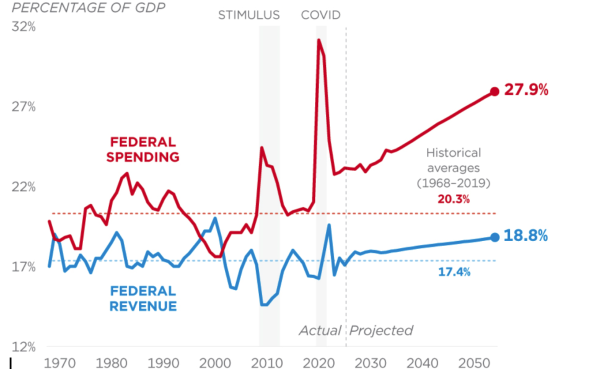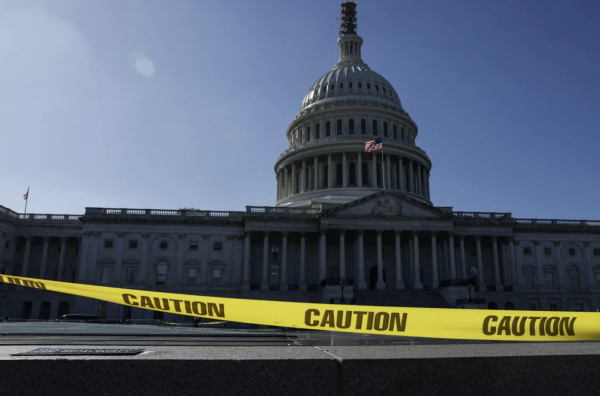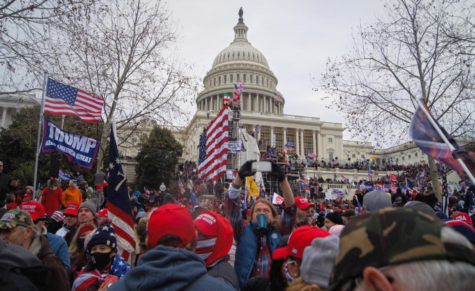U.S.-North Korea relations grow icy amidst Pyeongchang Winter Olympics
On Feb. 9, nearly 3,000 athletes from around the world gathered in the Olympic stadium in Pyeongchang county, South Korea, for the opening ceremony of the 2018 Winter Olympics, kicking off 16 days of competition between 92 countries. The participating nations filed into the 35,000-seat stadium in order of the Korean alphabet, Hangul, with the exception of Greece leading as the first country, as per tradition.
Despite the brittle weather, the Parade of Nations concluded with a heartwarming moment for many in and out of the stadium as North and South Korea marched under one unified flag. Additionally, athletes from both sides of the peninsula joined forces in a joint women’s hockey team, under the abbreviation “COR,” short for the Italian word for “Korea.” However, these political statements were not received well by many South Korean citizens and matters also remain tense between the North and the United States.
Outside the National Theater of Korea in Seoul where Kim Yo-jong, sister of Kim Jong-un, and President Moon Jae-in of South Korea were to watch a performance of North Korea’s Samjiyon Orchestra, around 800 South Koreans protested the unified flag, burning North Korean flags and shouting, “Let’s tear Kim Jong-un to death.” North Korea’s presence in this year’s Olympics did not sit well with the United States. Vice President Mike Pence took to Twitter to announce Fred Warmbier, father of Otto Warmbier, will join him at the Olympics to “remind the world of the atrocities happening in North Korea.” Warmbier, a student at UVA, was sentenced to 15 years of hard labor in North Korea after allegedly stealing a propaganda poster, but was released after 17 months due to severe brain damage before dying six days later.
Additionally, Pence received backlash for not standing for North and South Korea during the Parade of Nations after his public expression of disapproval for integrating politics into sports that started with NFL players kneeling in protest during the national anthem. The statement came across as hypocritical to many as standing could have been a simple way of expressing respect towards North Korea in such a tense political climate between the two countries, especially after President Donald Trump’s strict stance on North Korea was credited for inadvertently encouraging Kim Jong-un to restart negotiations with South Korea.
“The Korean War isn’t technically over, in the sense that there was a truce, but unlike World War II or the Civil War – where there are documents signed and one side surrenders to the other,” said history teacher John Monahan. “The implication is North Korean invasion of South Korea could start again tomorrow.”
Although Moon Jae-in credits President Trump for the start of more talks between North and South Korea, many Americans are reluctant to encourage Trump’s threats of nuclear war, especially after a false missile alarm shook Hawaii in early Jan., just 10 days after North and South Korea reconnected on a previously dormant hotline. Tensions between North Korea and the United States have escalated in the last year, with North Korea testing several ballistic missiles just in 2017, but the reasons behind the tense interactions and what they might bring about have long been debated.
“I think it gets into political and economic ideology, security guarantees, and reassuring our allies that we’re not going to break our promises to them,” said Monahan. “If Americans were surprised by the outcome of our 2016 presidential election and its allegations of outside meddling, the North Korean system is so far beyond that in terms of manipulation and domination, that it’s really troubling to a liberal democracy. Economically, North Korea is a communist system with even more limits on individual economic opportunity than you might think, and that again, is so troubling to a market-based, capitalist economy. Those concerns became a military issue the United States was willing to threaten nuclear war over partially because of the Korean War from 1950 to 1953.”
Some sources claim that North Korea’s hatred towards the United States is a result of the various war crimes the U.S. committed during the Korean War. While war crimes were not as unjustifiable as they are perceived to be today, there was little to no press coverage of the bombings in North Korea that killed about 20 percent of the population in the three years of the Korean War, and still, many are unaware of such events.
“I think [misinformation on North Korea] comes from people not doing their own research and just believing the first thing that they hear, strong rhetoric, and America not being very educated about issues overseas,” said Young Democrats co-president Imani Bennett. “We definitely need to go more in depth into the past and note where the United States has gone wrong. Since the public doesn’t really know much about the U.S.’ past with North Korea, they can’t have a more educated opinion.”
Factors that contribute to Americans’ perception of North Korea include the lack of education about the Korean War and the little information we know about a country as isolated as North Korea. Its 24 million citizens don’t have access to the free internet and are forbidden from viewing media other than state-controlled television programs – such crimes against the state have consequences as extreme as public execution.
“Where I think Americans get confused is the fact that we don’t fully understand just how brutal and unproductive North Korea’s politics and economy can be,” said Monahan. “So when an occasional flare-up happens, all of a sudden it seems like the likelihood of nuclear war dramatically increases. That’s where I think there’s a gap between establishment, political military, leadership thinking in Washington, and the rest of the country.”
Other than the content, another major issue with the information Americans receive is the media source itself. A poll conducted by Pew Research Center in Aug. 2017 relays that 67 percent of American adults receive “at least some of their news” from social media.
Receiving news via platforms like Twitter or Instagram is quick and convenient, but downsides such as algorithms and a plethora of false news stories lead to polarizing viewpoints and even more misinformation. Algorithms like Facebook’s learn the user’s preferences and interests and thus cater the same type of information in order to increase engagement with the site. This cycle can often lead to being stuck in an “echo chamber,” the term for when users only receive news that aligns with their opinions because of their sole dependence on social media and their algorithms as a resource.
“Not being self-aware that an algorithm is putting things in front of you that reflect the choices that you have made will be to not be self-aware that you are narrowing what information gets to you,” said Monahan. “I think in a country as politically divided as ours, in a world as potentially dangerous as the world is, we need to be widening where we get our information from.”
Another survey by the Pew Research Center from Jan. 2016 reports that 35 percent of the American adults ages 18 to 29 surveyed view social media as the most helpful source for information about the 2016 presidential election.
“I do think we have a tendency to plug into one news source over another and news sources have the tendency to put in that which advances their agenda and leave out that which does not – and that’s true on the right or the left or anything in between,” said Bible teacher George Berry.
Many trusted news sources run legitimate stories but still have biases. A resource’s bias can be determined not just by the language and type of stories they offer, but also the frequency of such articles. Another issue that continues to plague journalism is fake news stories from arbitrary sources.
“I don’t think [receiving news from social media] is a bad thing, we just have to check our sources,” said Bennett. “That’s how I get all of my news, but then I also go on Google and research the topic further. I think social media just puts the most eye-catching headline and I don’t think that’s necessarily a good thing because the [article] could have false information that people receive from its headline, so we have to be careful and double check everything.”
While Twitter is no stranger to fake news stories, it also is President Trump’s platform of choice for vocalizing his opinions, which are often under flame for coming across too nonchalant. The most recent tweet to receive criticism was related to Kim Jong-un’s New Year’s Day speech where he warns that “the nuclear button is on his desk at all times.” Trump tweeted in response, “Will someone from his depleted and food starved regime please inform him that I too have a Nuclear Button, but it is a much bigger & more powerful one than his, and my Button works!”
“I think that the tweet was very inappropriate, our president shouldn’t be having Twitter battles with the leader of North Korea who could nuke us at any moment, so you have to be really careful,” said Bennett. “I don’t think we should take each threat with a grain of salt – we should definitely pay attention to them and how frequently Kim Jong-un is threatening us. If I were in Donald Trump’s position right now, I would try my best to stay away from all the ‘Twitter beef’ because that [shouldn’t be] the focus – we have a tax bill, a new healthcare bill, and recently he’s focused on his new immigration policy. [He should] follow up on his promises that he made during his campaign and not focus on North Korea all the time.”
In 1994, the commander of U.S. forces in Korea told President Bill Clinton that one million deaths would result from a war with North Korea. Nearly 30 years later, it’s difficult to determine exactly how many lives would be lost in a war against North Korea due to the lack of knowledge of how many nuclear weapons the North Korean regime currently has under its belt, but it is estimated that nuclear war would be detrimental and lead to the deaths of millions around the world. It’s challenging for many to think about any type of war with North Korea that wouldn’t inevitably end in nuclear war.
“Every other option runs the risk of nuclear war or tremendous sacrifice – there’s no guarantee that if we started a conventional war trying to overthrow the regime in North Korea, it wouldn’t lead to nuclear retaliation by Pyongyang against Seoul,” said Monahan. “And that’s all it would take for us to need to retaliate on a nuclear level if we wanted to be perceived as an adversary that could restrain the North Korean regime. Two nuclear bombs, one going each way, is enough to kill millions of people, which is where our thinking of North Korea can be somewhat limited because there’s so few options between all or nothing.”
Weighing the pros and cons of nuclear retaliation is very difficult considering the slippery slope where the U.S. and North Korea stand now.
“On one hand, that’s obviously a very big concern if you do indeed have this regime in North Korea making a nuclear arsenal and that is a legitimate threat to the United States or some of our allies, like Japan,” said Berry. “On the other side of the coin, I think you have to think very long and hard before you make any sort of preemptive strike. It is wrong and I think it certainly should be against American foreign policy to attack a country that has not attacked you. Of course, there are those that would say we better take care of their nuclear missiles because they’re aimed at cities on the west coast or our allies in that part of the world. One concern I have is to what degree does North Korea really want a war with the United States? Yes, they are gaining in terms of their nuclear capabilities, but a war with the United States at this point in time would be practically suicidal for them.”
A major concern for many citizens and government officials is the wellbeing of South Korea and Japan, U.S. allies that neighbor North Korea. After the United States backed South Korea during the Korean War, South Korea experienced tremendous prosperity and became less dependent on the U.S., but the alliance solidified under the Lee Myung-bak administration of 2008-2013. In 2009, President Barack Obama called South Korea “one of America’s closest allies and greatest friends.”
“I started paying more attention [to the problem] when I started doing my own research and saw that they have missiles capable of reaching our two of our allies, South Korea and Japan, because they’re not doing anything wrong and they can’t defend themselves,” said Bennett. “Also, their ICBMs are capable of reaching Alaska and the continental U.S.”
While polls report that 60 percent of South Korea’s population are in favor of building nuclear weapons, the numbers are much lower in Japan, considering the atomic bombings of Hiroshima and Nagasaki during World War II that are the only events in history where nuclear weapons were utilized in combat.
Although Henry Kissinger, a former U.S. nuclear strategist during the Cold War, confirmed in Oct. 2017 that there has been talk of South Korea and Japan considering the development of nuclear weapons for self-defense, the two countries worry that the U.S. would be reluctant to help them out of fear that doing so would incite a direct attack from North Korea.
“I’m optimistic that there’s not going to be a nuclear war; I’m cynical about the likelihood that the fundamentals of the North Korean government and its policies are going to change in my lifetime,” said Monahan. “The North Korean leader is 34, I’m 35. I think for as long as he’s in power, he’s going to want to remain in power. I’m a cynic in that regard.”
Kim’s birth year is uncertain, but he is believed to have been around 27 when he succeeded his father in 2011 as supreme leader of North Korea, making him the youngest head of state in the world at the time of his rise to power. Kim has shown his intent in keeping his power through his notorious method of ordering the deaths of family members suspected to be traitors.
Most recently, South Korean officials linked Kim to the murder of his half-brother, who allegedly said negative things about the North Korean regime. In Feb. 2017, Kim Jong-nam was poisoned in a Malaysian airport by two women who rubbed a fatal nerve agent called VX on his face. Both women claimed they thought they were participating in a prank TV show. However, it’s been confirmed that Kim ordered the execution of his uncle, Jang Sung-thaek, in Dec. 2013 for trying to take control of North Korea with a coup. There were reports released later that said Kim also killed the rest of Jung’s family. Many North Koreans who wish to escape the country refrain from doing so out of fear of the same consequences, especially with the knowledge that, even if they were to successfully escape, any family members remaining in North Korea would be punished, per the “three generations of punishment” rule. This rule applies to all acts designated as crimes under North Korean law.
“As I understand it, the regime in North Korea is pretty repressive,” said Berry. “My hope is that that slowly but surely could come to an end and that would promote the United States to ease up on some of the sanctions and start some sort of trade agreements that would raise the standard of living for the citizens of North Korea. I’m grateful that South Korea has had the prosperity that it’s had. It would be wonderful if tensions could be eased and people on the entire peninsula could enjoy a certain degree of freedom and opportunity.”
Although some North Korean citizens live a somewhat normal life – taking the subway, driving cars, partaking in Western fashion trends – Human Rights Watch reports that the government routinely violates a plethora of human rights through methods such as murder, torture, and enslavement.
“I like to be optimistic and hope for peace – hopefully we don’t have to go through nuclear war for that to happen,” said Bennett.






